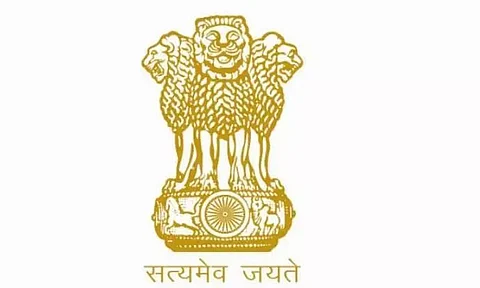
- Home
- Live Blog
- Breaking News
- Top Headlines
- Cities
- NE News
- Sentinel Media
- Sports
- Education
- Jobs

The Draft India Data Accessibility & Use Policy 2022 released by the Ministry of Electronics and Information Technology (MEITY) has proposed radical transformation in the country's data governance policy framework. The draft policy will require more elaboration on several aspects to remove the apprehension of violation of data privacy of citizens. The policy will apply to all data and information created/generated/collected/archived by the Government directly or through authorised agencies by various ministries, departments, organisations, agencies and autonomous bodies. The State Government will also be free to adopt the provisions of the policy and the protocols as applicable. The MEITY proposes to set up an India Data Office with the objective of streamlining and consolidating data access and sharing of public data repositories across the government and other stakeholders. Every Ministry/Department shall have Data Management Units headed by Chief Data Officers which will work closely with the India Data Office for implementation of the policy. The policy does not clarify if the India Data Office or the India Data Council to be comprised of India Data Officer and State Data Officers will be subject to parliament scrutiny or an independent regulator to ensure transparency in the use of public data by the government. The policy proposes to notify institutional framework for identifying High-Value Data sets which will be defined based on their "degree of importance in the market," besides the degree of socio-economic benefits, impact on India's Artificial Intelligence strategy and performance on key global indicators. A background note on the policy released by MEITY has listed lack of a well-structured mechanism for monitoring the data sharing efforts of various line ministries/departments/agencies, inadequate data discoverability, sub-optimal inter-government data sharing, duplication of datasets, siloed data platforms, portals and delayed integration with Open Government Data platforms, lack of a framework of identifying High-Value Data and absence of Data licensing ad Valuation Framework and policy constraints for release of priced data sets among others as bottlenecks in data accessibility and use. It states that the private sector relies on high-value public data repositories in sectors such as health, geo-spatial mapping, and energy to successfully inject innovations and data-driven economy and underlines the importance of future-forward data policy to engage with data from public and private sources to make it accessible from the government to government, government to business, business to government and business to business. The background note projects a five-fold increase in economic value from India's digital transformation by 2025 contributing 1 trillion dollars towards 5 trillion dollars economy which explains the push for the new policy on government data accessibility and use. The projected rise of active internet users in the country to 900 million by 2025, 330 million 5G subscribers by 2026, and the current gigantic IT workforce of 4.47 million highlighted in the note circulated by MEITY are understood to have shaped the new ambitions of achieving the trillion dollars digital economy. On pricing and licensing the policy proposes that minimally processed datasets shall be made available at no cost but certain datasets which have undergone value addition/transformation may be valued appropriately by the owner departments/ministries of the central and state governments appropriately. Monetization of public data collected and generated by the government is a grey area and has triggered apprehension of violation of citizens' privacy which is expected to figure prominently during the public consultation process. The MEITY has fixed March 18 for feedback on the policy draft released for public consultation. The draft policy has mentioned that all ministries and departments must comply with the minimum anonymisation standards defined by the India Data Office or MEITY or by any statute, act or policy issued by the Government of India. The "minimum anonymization standards" will remain vague and need to be spelt out more comprehensively to remove apprehension over the violation of the data privacy of citizens. The policy proposes that a data-sharing toolkit will be provided to all ministries/departments to help assess and optimally manage risk associated with data sharing and release and the framework will help data officers to identify whether datasets qualify for release, restricted sharing or needs to be on the negative lists. There will be a clamour for more clarity as to who will get access to data identified under "restricted sharing." Besides, a transparent mechanism will need to be put in place to ensure that data officers do not reduce access of the citizens to open public data which they need for transparency on utilization of taxpayers' money, implementation of various government schemes and projects, environmental impact assessments on development projects by putting them on negative lists or restricted sharing lists.
A robust policy on data accessibility and use is the need of the hour but the policy will find more acceptance by removing apprehensions of violation of data privacy and transparency on the monetisation of public data available with the Government.